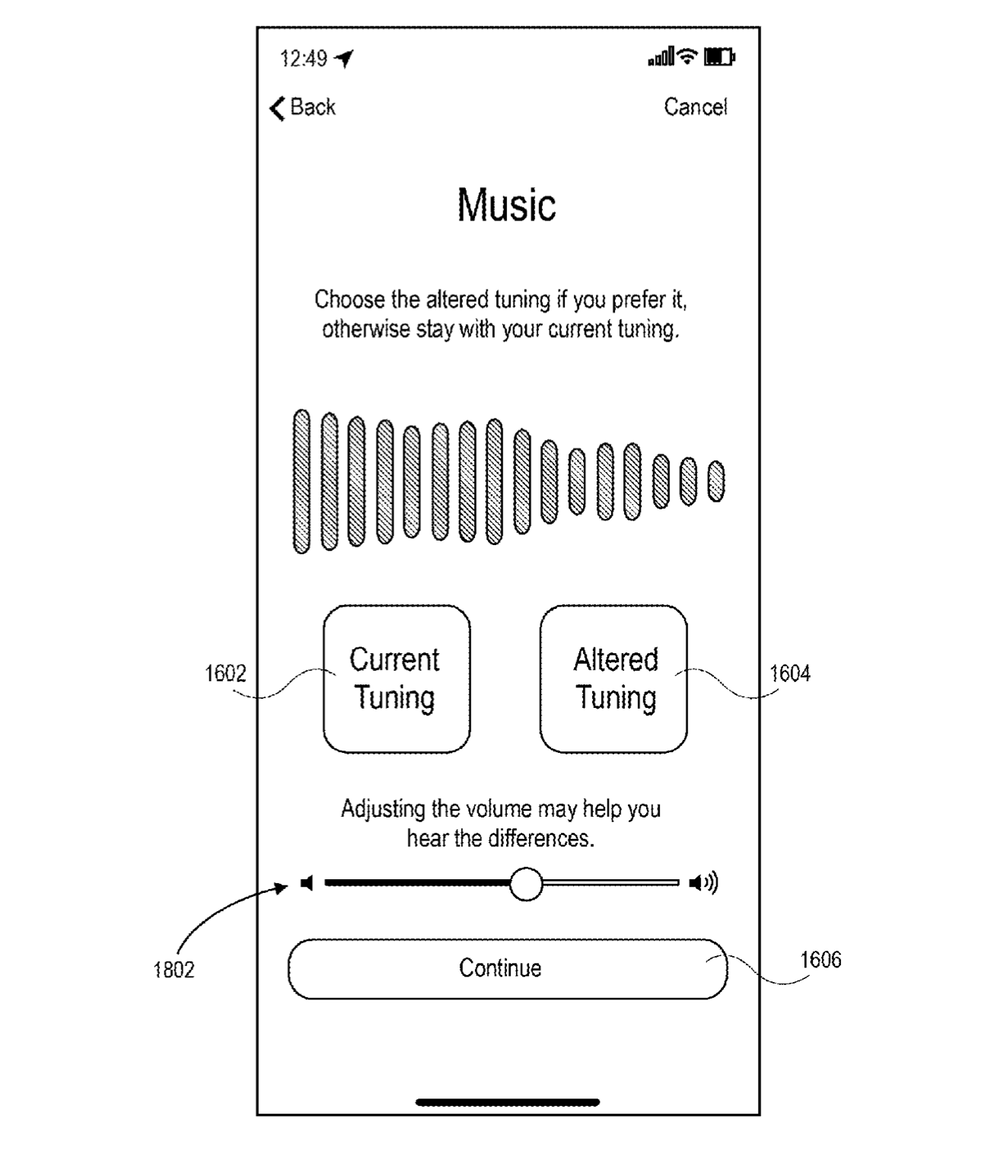Apple has filed for a patent (number 20200382879) for a “media system and method of accommodating hearing loss” to make its various devices more user friendly to the hearing impaired.
In the patent data, Apple notes that audio-capable devices, such as Mac laptops, iPads iPhones, and other mobile devices, can deliver audio content to a user. For example, the user may use the audio-capable device to listen to audio content. The audio content can be pre-stored audio content, such as a music file, a podcast, a virtual assistant message, etc., which is played to the user by a speaker. Or the reproduced audio content can be real-time audio content, such as audio content from a phone call, a videoconference, etc.

However, noise exposure, aging, or other factors can cause an individual to experience hearing loss. Hearing loss profiles of individuals can vary widely, and may even be attributed to people who aren’t diagnosed as having hearing impairment. That is, every individual can have some frequency-dependent loudness perceptions that differ from a norm. Such differences can vary widely across a human population, and correspond to a spectrum of hearing loss profiles of the human population.
Given that each individual hears differently, audio content that is reproduced in the same way to several individuals may be experienced differently by each. For example, a person with substantial hearing loss at a particular frequency may experience playback of audio content containing substantial components at that frequency as being muffled. By contrast a person without hearing loss at the particular frequency may experience playback of the same audio content as being clear.
Apple’s idea is that an individual can adjust audio-capable devices to modify playback of audio content in order to enhance the user’s experience. For example, the person that has substantial hearing loss at the particular frequency can adjust an overall level of the audio signal volume to increase a loudness of the reproduced audio. Such adjustments can be made in hopes that the modified playback will compensate for the hearing loss of the person.
Here’s the summary of the patent filing: “A media system and a method of using the media system to accommodate hearing loss of a user, are described. The method includes selecting a personal level-and-frequency dependent audio filter that corresponds to a hearing loss profile of the user. The personal level-and-frequency dependent audio filter can be one of several level-and-frequency-dependent audio filters having respective average gain levels and respective gain contours.
“An accommodative audio output signal can be generated by applying the personal level-and-frequency dependent audio filter to an audio input signal to enhance the audio input signal based on an input level and an input frequency of the audio input signal. The audio output signal can be played by an audio output device to deliver speech or music that the user perceives clearly, despite the hearing loss of the user. Other aspects are also described and claimed.”
